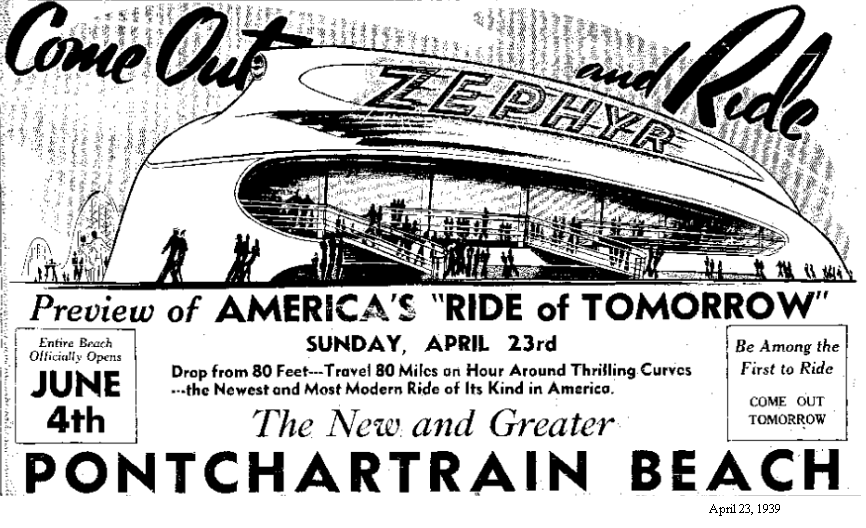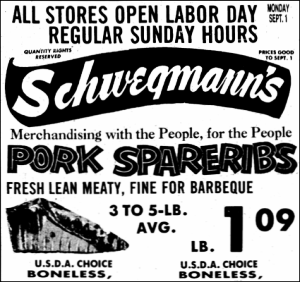|
Today in New Orleans History |
|
|
April 20



Tallant also wrote and had published numerous short stories and articles on subjects of local interest. His 1951 The Pirate Lafitte and the Battle of New Orleans won the Louisiana Library Association award for the best book of that year. In 1952 his revision of the Writers' Project
New Orleans City Guide was published by Houghton Mifflin. During the last years of his life, Tallant lectured in English at Newcomb College
and worked as a reporter for the New Orleans Item. Robert Tallant died in New Orleans on April 1, 1957. (Photo and text from
the New Orleans Public Library)  

To receive an update for each day in New Orleans
history, join our facebook page
- Today in New Orleans History
Suspecting Congressman Willian Jefferson of bribery, the FBI raided his Congressional offices in May
2006, but he was re-elected later that year. On June 4, 2007, a federal grand jury indicted Jefferson on sixteen felony charges
related to corruption. Jefferson was defeated by Republican Joseph Cao on December 6, 2008, being the most senior Democrat
to lose re-election that year. In 2009, he was tried in Virginia on corruption charges. On August 5, 2009, he was found guilty
of eleven of the sixteen corruption counts. Jefferson's lawyers have promised to appeal, a gesture which New Orleans former
U.S. attorney Harry Rosenberg told the Times-Picayune may work in Jefferson's favor because the jury failed to convict him
on all sixteen of the indictment counts. Jefferson was sentenced to thirteen years on November 13, 2009, the longest sentence
yet handed down to a congressman for bribery or any other crime. On March 26, 2012, the U.S. Court of Appeals for the Fourth
Circuit affirmed Jefferson's conviction and sentence on ten of the eleven counts on which he was convicted. The Court of
Appeals vacated and remanded the conviction on one count of the indictment, involving alleged wire fraud, holding that venue
on that count was improper in the federal court in Virginia. On April 20, 2012, U.S. District Court judge
T.S. Ellis revoked Jefferson's bail and ordered that he report to prison to begin serving his thirteen-year sentence by May
4, 2012. On May 4, 2012, Jefferson surrendered to the Bureau of Prisons facility in Beaumont, Texas to begin serving his
13-year sentence. He is scheduled for release on August 30, 2023. Jefferson owes $5 million in legal fees and has filed for
bankruptcy.
|
|
|

To receive an update for each day in New Orleans history,
join our facebook page - Today in New
Orleans History.
Analytics |


